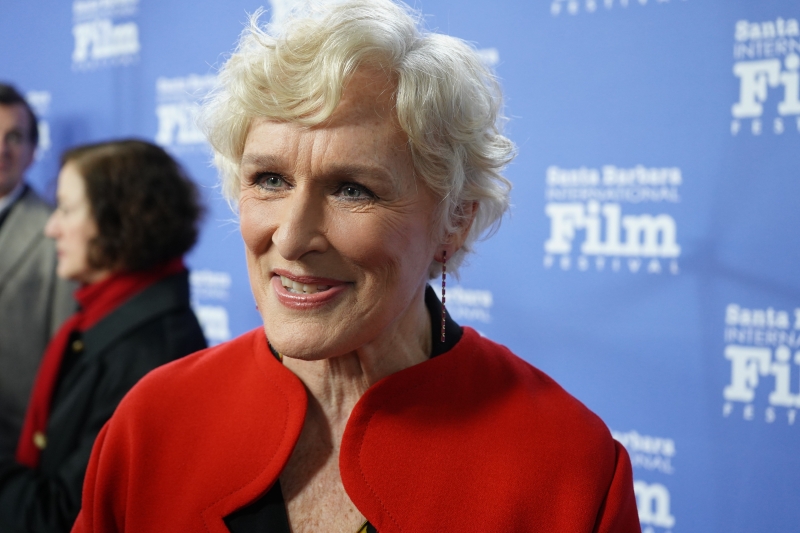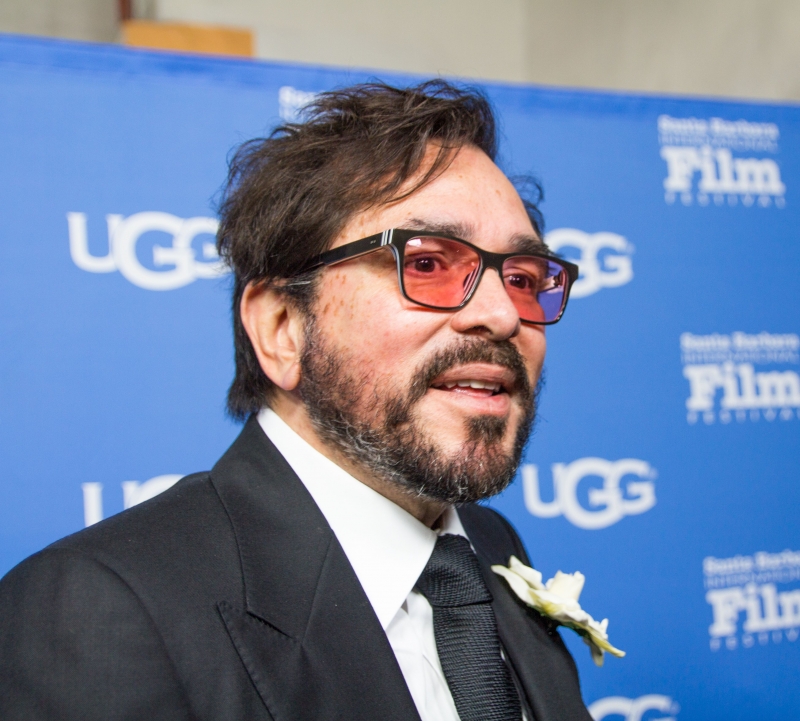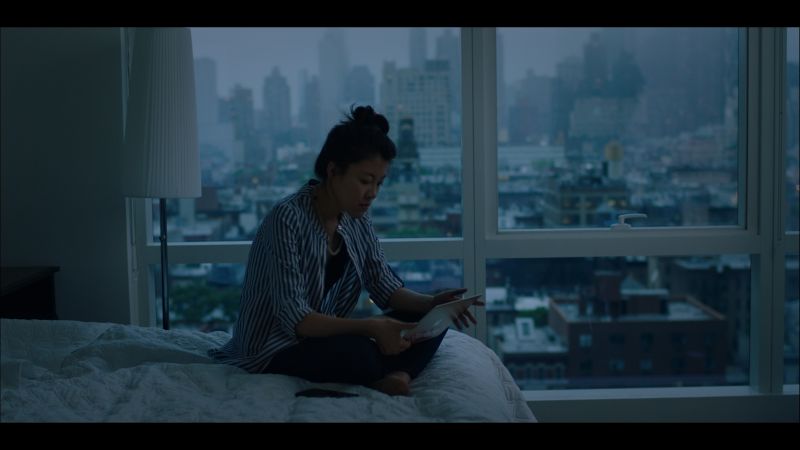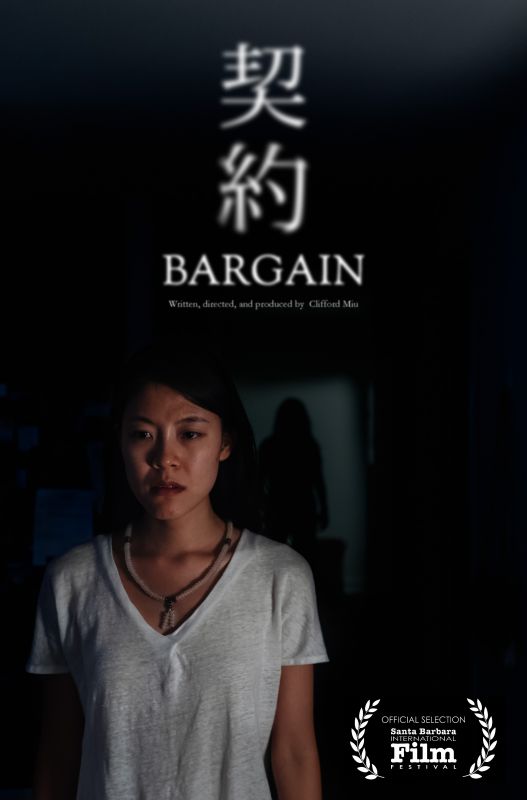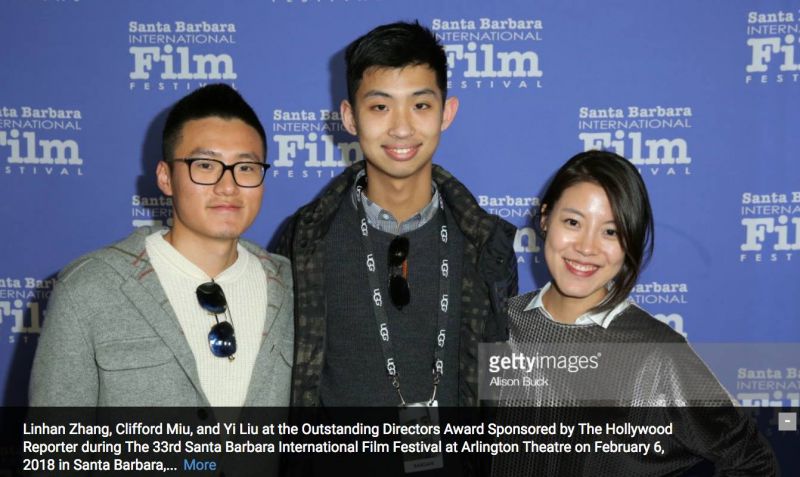|
|
||
|
Pro Tools
FILMFESTIVALS | 24/7 world wide coverageWelcome ! Enjoy the best of both worlds: Film & Festival News, exploring the best of the film festivals community. Launched in 1995, relentlessly connecting films to festivals, documenting and promoting festivals worldwide. Working on an upgrade soon. For collaboration, editorial contributions, or publicity, please send us an email here. User login |
'Angels in Exile' (2013). Interview with Billy Raftery.
Written, directed, produced by Billy Raftery (‘Children Rise’, 2012), ‘Angels in Exile’ (2013) is a documentary of the social disaster of rampant poverty in South Africa. The film focuses on two indigent youths- Zulieka and Ariel- who have grown up in the streets of Durban, South Africa. Billy follows the lives of these two for nearly a decade from glue-sniffing children to young adults. The film is narrated by Charlize Theron. Recently I interviewed Billy Raftery about ‘Angels in Exile’. Please DO NOT miss this interview. It is filmmakers like Billy who are catalysts for change. Fearless and heroic, Billy's journey to make this film was 10 years in the making and a behind-the-scenes story in itself not to be missed.
ME: How did you first meet Zulieka and Ariel and what first inspired you to make a doc about them?
BILLY: I actually met Zulieka and Ariel through a series of events that led me to Durban in the first place. In 2003, one of my best friends from Jersey (Will Gaertner) was living in Cape Town, South Africa when I was in my senior year at Columbia University. I managed to save some money from bartending and go visit him for a surf trip up the coast – Cape Town to Durban with many, many point break stops along the way. As we moved northeast from Cape Town towards Durban I began to take notice of more and more homeless children. When we reached the world famous surf town of Jeffery’s Bay, I noticed a group of homeless kids that were aggressively panhandling tourists outside of a grocery store. They approached me to ask for money and I said “no, but I can hook you up with some grub”. Of course that made no sense until I actually bought the food for them. I asked the kids where they were from, where's their family and the like. They immediately turned the questions on me. “Why do you talk so funny?” “Where are you from, mlungu?” Provided they are homeless children with nothing but the bottle of glue in their hands, they all had this fun loving innocence and gregarious disposition. As the conversation took flight, my buddies came out of the grocery store and wanted to leave. I just wanted to sit back and hang out with these kids to find out more. BILLY (CONT’D): I was so taken aback having grown up in a bubble between New Jersey and New York City. I thought I knew abject poverty having played basketball since the age of five in Newark, New Jersey with my Project Pride All-Stars or Broadway and Central Ward Boys and Girls Club teams; but this was a whole other ball game. This graphic visibility of kids getting high on glue, being sickly, begging and raising hell was shocking. When I penetrated the hype of these kids being too dangerous to approach and spent a little bit of time, they showed a reciprocating care and interest to get to know me. They weren’t that sad faced, fly on the forehead, distended stomach image you know from Sally Struthers, they were happy, full of life and just in need of some care - I found that these kids were just like any kids at the core. Immediately, I knew this was an issue I wanted to work with either through film or a legitimate nonprofit fighting on their behalf. BILLY: (CONT’D) I returned home to graduate college and then immediately back to South Africa to help a dear friend named Sean Tuohey’s nonprofit then called Playing For Peace (now Peace Players International) in its infantile stages. I knew this would be a great way to work with the street kids as Playing For Peace, at the time, had a wide open canvas for taking the program in any direction you wanted to. We were using basketball to bridge the racial divide that apartheid left behind and figuring out how to maximize our reach. While working with them I was encouraged to pursue my passion towards working with the street kids as I felt they were perhaps the most at risk youth in the face of HIV/AIDS in the country – the epicenter of the epicenter of the virus. BILLY (CONT’D): When I moved back to South Africa full time, I didn’t see anyone working for the street kids. The only interaction with the kids I was aware of was when Sean attempted to work with the street kids. On the first day they broke into his car and stole his size 13 sneakers. The next day an 8-year old kid showed up to Sean’s practice sporting his size 13’s sneaks! He refused to work with these defiant kids and stuck to the kids within the school system to build his program – now perhaps the world’s leading nonprofit in using sport to bridge divides in racial and creed torn countries. However, the street kids were unavoidable Sean quickly realized. They lived directly outside of our flat. One of the kids was Ariel. He spoke fluent English and was my instant inroad to the hub of the street children on Point Road, the neighborhood where most ‘Angels In Exile’ takes place. I told Ariel I wanted to start teaching he and his friends how to play basketball and surf – and yes, I’d bring food! He said, “See you tomorrow morning, Bee-lee.” BILLY (CONT’D): That morning I found Ariel asleep underneath a rubbish bin outside of a bar on Durban’s North Beach. I asked him to help me wake up the others, as I was terrified to disrupt some of the older homeless guys from their sleep. When they did wake up to see a long curly haired ginge with a basketball and surfboard they must have been convinced the glue they profusely huff was making them hallucinate. BILLY (CONT’D): As time progressed so did the footage I was accumulating on the street kids. I managed to use this footage and cut a 3-minute sizzle reel to begin fundraising for a nonprofit I founded called the Children Rise Foundation. I partnered with our sister organization called Umthombo Organization that was comprised primarily of former street children and handful of social welfare workers and professional executives to bolster our presence on the streets. By 2004, I had about 30-hours of footage and still did not have a strong female to speak on behalf of the girls living on the street. I knew Ariel was the perfect candidate to represent the boys, but where was my girl? One day working the streets, I went to the Victoria Embankment just off of Point Road because I heard a kid had been stabbed. When I arrived on the scene, Zulieka, knowing her stabbed friend was in OK shape, came up to me with her arms flailing for a high five saying “What are you doing here?” Such charisma and character for a 12-year old street girl. I immediately knew she was the perfect girl to tell the story. BILLY (CONT’D): I went on to film both Ariel and Zulieka, along with their many friends, for nearly 10-years to deliver a story that we believe represents not just the homeless youth in South Africa, but around the world in all too similar situations. By honing in on a boy and girl we believed we would provide a documentary with an accurate portrayal of the streets. Their lives make way for an international story as we can relate to these children we meet at 12, allowing us to hang in there with them as they spiral downward into the inherent ills of the streets in hopes they get off – and luckily in our story, they do.
ME: How long did you spend on the streets in Durban to make this film?
BILLY: I spent five solid years in Durban between 2003 and late 2007, both filming and working as a service provider with our Children Rise Foundation’s (the financing arm of its ‘Angels In Exile’) sister organization, Umthombo. I would return home every 8-months or so for about a month to raise more donations to continue filming our doc. During this time we would organize footage with an editor as well as cut new promo pieces to present to our potential funders at events. From 2008 through 2012, I retuned to Durban a couple of times and also had my team of former street children at Umthombo do pick up shoots for us while we edited in the States. By January 2013 we had a final cut. Not quite as smooth of a process as I thought it would be in 2003!
ME: Would you say that South Africa is dangerous for foreigners (as is the popular notion) or more dangerous for those living there? And what do you think is the best way for SA to improve its social system to get kids off the street?
BILLY: Personally, I would say although South Africa is perhaps one of the most evolving and progressive nations, particularly in its major cities, it’s now become one of the most crime ridden countries in the world. Since the end of apartheid crime has only escalated. When I was working on Point Road I would see foreigners “backpacking” through town and I would tell them, “Hey I know it must sound funny coming from a dude with an American accent, but you need to get the hell out of here.” Through our work with the kids, we must maintain relationships with the gangsters and dealers who run the streets for our own safety. Also, fascinating enough, the gangsters loved what we were doing for the kids even though they were using them for petty theft and drug running. They would say that as long as the kids were there, they would use them. However, they would never keep them away from our goal of getting them off the street. The implored the kids to listen to us. Quite the opposite of what you would think. BILLY (CONT’D): As for those living in South Africa, the longer you live there the higher your chances of coming across danger are. It becomes a mathematical certainty. Everyone I know from South Africa has first hand accounts of absolute horror stories. To answer the last part of your question, I believe that in order for South Africa to improve its social system to get these kids off the streets it is best for the government to step away from the issue and allow groundbreaking organizations like Umthombo Organization take control of this children’s social injustices’ sector. BILLY (CONT’D): In Durban, we battled with the municipality for years as they continued to brutalize the kids and round them up for holidays and international conferences to rid the streets of the city’s eye sore – the homeless youth. We were the first to capture these round ups on camera and that helped. Ultimately, Umthombo’s nonstop lobbying with the government (specifically Umthombo Founders Tom and Mandi Hewitt) they have put the round ups to an end in Durban. The local authorities now look to Umthombo to help develop the proper strategies in governance of the street children based on our staff’s experience. They have all overcome the streets and turned success stories. They have very tight relationships with their brothers and sisters that remain on the streets, allowing them to be the true authorities on the issue of homeless youth. BILLY (CONT’D): Every time the government takes the issue into their own hands, something disastrous happens. Since the municipality has turned to our team for help, things have changed dramatically on the streets of Durban. When I arrived there was a controversial census of 5,000 kids on the city’s streets. Today, there are around 400.
ME: Since you covered the lives of Zulieka and Ariel over ten years, how much raw footage did you have by the end?
BILLY: By the end we accumulated roughly 250-hours of footage. With this excess footage containing so many wonderfully compelling stories of kids that did not make the film’s final cut, we are launching an Action Campaign that will utilize this footage by creating a series of shorts to engage an audience outside of our commercial approach. Ultimately, we are building our fan base by merging a grassroots action campaign both virally and through touring universities with our sought after commercial distribution deal.
ME: What is your best memory while making this film? And your worst?
BILLY: The first thing that comes to mind is the overall relationships we have with the kids, and vice versa. Each day in Durban, as challenging and disturbing as the work may be, is always an adventure. Our teams operate with trust and camaraderie. Here are two anecdotes that just popped up from the mental filing cabinet that highlight these themes. BILLY (CONT’D): On a broader level, when we captured the Police brutalizing the street children and forcing them into paddy wagons to ship them out of town for the duration of an international conference, we had a former street kid working for the municipality that was tipping us off the whole time. He and I texted every other minute to make sure we were in the right place at the right time. We had a fleet of about 4 cars of Umthombo staff members circling around town to ensure we caught this on camera. Also, every street kid in town knew what we were up to and further helped us catch the municipality red handed. It worked ever so narrowly. After a couple of kids yelled “Billy” over and over out of the paddy wagon, the municipal authorities began to get wind of some American kid making a documentary on their street child crisis. About a week later, I was arrested in an unrelated event, for filming the police arresting a drug dealer – good b-roll right? After detaining me for 4-hours, they decided they would take the tape in the camera deck. It had an interview with our Municipal worker/former street kid that was tipping us off during the round ups and the City Manager watched it. They fired my former street child friend (he is now one of Umthombo’s surf coaches) and put out a search for my footage and me. I had to disappear and get my tapes out of the country, stat. I gave some to an American I knew that was going home and hid the other half of them at a friends house outside of Durban. I left for Mozambique and returned once Tom Hewitt told me things seemed to cool down. When I returned I found out that I was reported missing for a short time until my folks spoke to Tom Hewitt. Everything seemed to blow over and we carried on filming. BILLY (CONT’D): On a more micro level, we pulled up to Zulieka’s section of town to check in on she and her friends. One of the boys stole my blackberry. This was the first and only time a kid had stolen from me. The blackberry had all of my work emails on it and the most used work device I had access to while on the streets. I didn’t realize it was missing until I went to another area on Point Road to check in on some other kids. I turned to my Umthombo partner and dear friend who is in the film, Sosha Thuthukani, and said my phone was gone. We told the kids we were with and word began to spread around Point Road like wild fire. Within a couple of hours, multiple groups of street kids were charging down the city streets screaming for my phone. They were irate. I was so moved that all these kids had my back and wanted my phone back – they knew it was my work phone and they, the street kids, were (and still are) my boss. By the third hour, a gangster came out of an abandoned house, where street kids squatted, with my blackberry in hand, asking me how to unlock the phone. I asked him where he got the phone and he said it came from Little Lee (a young street boy that lived with Zulieka) and had been bought and sold five times over. The street kids literally hunted my phone down out of the depths of the black market. Word spread that Little Lee stole the phone and the kids, completely on their own accord, scared him off the streets. We never saw Little Lee again. That’s one less kid on the street, so phone or not, it ended in victory for our team! BILLY (CONT’D): The worst memories are perhaps too graphic and disturbing to explain in an interview. I will say this- the way in which the community and authorities perceive and treat these youths and allow them to go so unnoticed is perhaps the most appalling memory in regards to fundamental care and love for another. That could be the worst over arching memory I have around the issue.
ME: Do you keep in touch with Zulieka and Ariel now and are their lives continuing to improve on a positive note?
BILLY: I sure do. Zulieka is the captain of her own ship these days and still with Simphiwe, her boyfriend you meet towards the end of the film. Ariel goes back and forth between home and the streets so he is not as good of shape as Zulieka. Since cell phones come and go (I had 14 cells stolen in 5-years!) it is hard to reach them directly. Most often, a team member at Umthombo will go out to the streets after we speak and find some of the kids, including Zulieka and Ariel, and have me call them back 30-minutes later so I can speak with them.
ME: Did you have a lot of support making this film? Or was it a very difficult feat?
BILLY: We managed to get unbelievable support along the way and I am most thankful for that. On the other hand, I don’t think there has been one easy step in making this film, start to finish. It has been the biggest challenge of my life and continues to be. Every film is a monumental challenge and I’d be naive to think otherwise but this was a unique beast. First off, it’s a documentary. We established a nonprofit because I knew this would be the only way for the film to see completion versus taking investments that would be very tough to pay back as we never knew when the ending would be. The donations allowed the longevity of the project and the luxury of not having heaps of money to pay out – instead, once our action campaign is complete all funds will go to Umthombo. Another obstacle is its content. It’s a tough pill to swallow, especially when so intimately told. Some people can’t handle it, nor do they want to. Lastly, we had international sales reps that were funding our operations go bankrupt in the indie drought the recession brought. Every corner we rounded another hurdle would be there. I seriously think I could write a great independent filmmaking book based on all the bumps and bruises we faced throughout the process. BILLY (CONT’D): At the end of the day, having folks like David Johnson and Adam Paul Smith at Act 4 Entertainment, Riza Aziz and his team at Red Granite Pictures and Charlize and her Charlize Theron Africa Outreach Project literally saved the day for us. These groups, along with Traction Media, my other EP’s Joe Petri and Harry Barton, and unbelievably supportive foundations, friends and family (especially my Mom and Dad!) believed in seeing our doc through to completion reinvigorated me during our last push to complete the film. I am forever thankful to these friends, old and new. They made the hardest part of the film, bringing it to the finish line, easy.
ME: How did you get Charlize Theron involved?
BILLY: I went for the 5-pronged approach with Charlize. I had a few friends that either knew her personally or worked with her and/or her team. But the real deal sealer was Act 4 Entertainment who is producing a film with her titled ‘Florence of Arabia’. ‘Angels In Exile’ managed to get through her brigade and into her hands. Luckily she had a very positive response to the film and invited us to a Charlize Theron Africa Outreach Project (CTAOP) event. She said she really identified with Zulieka and that she was willing to do whatever she could to help our cause. I really couldn’t think of better voice for our film. BILLY (CONT’D): As a side note, Charlize and her CTAOP Team could not be more helpful in our pursuit of raising global consciousness around the issue of what is perhaps the most overlooked population when talking about children at risk. She and her team brought Riza and Red Granite on board have stood by this film. They truly have proven that they do not take the issue of homeless youth lightly.
ME: How does it feel to have had your film at SBIFF and also to be traveling the world at festivals?
BILLY: Relieving! After all this hard work for nearly 10-years, it’s both humbling and rewarding to be acknowledged by such prestigious institutions and have incredibly receptive audiences. The reviews on the film have been beyond flattering too. I just hope they continue to pour in! More so, we hope that our niche film that tackles a broad social issue through an intimate character driven narrative captivates people in a way they want to engage and push our fight by continuing to support our efforts no matter what capacity it may be. We are open to just about anything that will further raise consciousness around the issue and further our fight.
ME: What are you working on next?
BILLY: I am currently in pre-production on a very exciting passion project that I am producing titled ‘The Preppie Connection’. My dear friend and colleague, Joe Castelo, is the director and writer. My partner Gregory Shockro and me are very excited to work alongside an all-star above-the-line team. ICM is packaging the film and Evan Peters and Bella Heathcote are set to star. BILLY (CONT’D): Also, I have two documentaries in the works and some exciting projects taking off with our Georgeville TV and Films. In the meantime, we are very excited about the life ‘Angels In Exile’ will take on as well as pushing the envelope with our new approach at distributing and engaging audiences around a social justice based film. There’s no ceiling for this type of film – it will be what we and the fans make of it, which is very exciting.
ME: Thanks, Billy. You are one of the few crusaders out there fighting for quality cinema and giving voice to many who would otherwise never be heard. It is truly inspiring! Thank you!
Interview by Vanessa McMahon. March 27, 2013.
28.03.2013 | Santa Barbara's blog Cat. : 'Angels in Exile' (2013). Interview with Billy Raftery. PEOPLE
|
LinksThe Bulletin Board > The Bulletin Board Blog Following News Interview with EFM (Berlin) Director
Interview with IFTA Chairman (AFM)
Interview with Cannes Marche du Film Director
Filmfestivals.com dailies live coverage from > Live from India
Useful links for the indies: > Big files transfer
+ SUBSCRIBE to the weekly Newsletter Deals+ Special offers and discounts from filmfestivals.com Selected fun offers
> Bonus Casino
User imagesAbout Santa Barbara The Santa Barbara International Film Festival has star wattage and a wealth of premieres in a Mediterrean-style city by the sea.
Blogging here with dailies: View my profile Send me a message The EditorUser contributions |





















